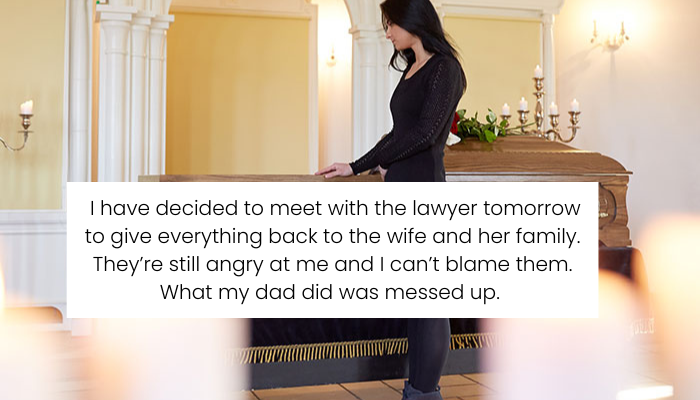Woman Skips Estranged Father’s Funeral, Then Discovers Shocking Truth in His Will
Family estrangement is a subject matter that can never be fully explored for its complexity and inherent pain, and the story of this 28-year-old woman (known as OP) reminds us of the emotional and ethical dilemmas that we may all find ourselves in. OP’s father left her when she was 10, so at 18 OP decided to write him out of her life. After all his lukewarm efforts to try to get back in her life after she moved to the US, there was really no question in her mind anymore, especially with complete radio silence from him with regards to her mother dying.
OP lost her father suddenly and his widow was grieving so she contacted OP and asked her to come to the funeral to “mend old wounds.” But OP did not owe mourning to someone who had made a point of never so much as laying eyes on her. Seven days later, she was given the bombshell news that her reclusive dad bequeathed everything to her in his will, leaving his wife and two other offspring, completely out of it. He received this inheritance and this angered the family he left behind who accused OP of “taking” their property. So, she wrestled with the ethics of this and then she made the decision: She returned the assets because she did not want to recreate the pattern of abandonment that had been part of her own history.
After her father walked out on her as a child, the woman cut all ties with him the moment she became an adult

So when he passed away, the last thing she expected was to inherit everything he left behind
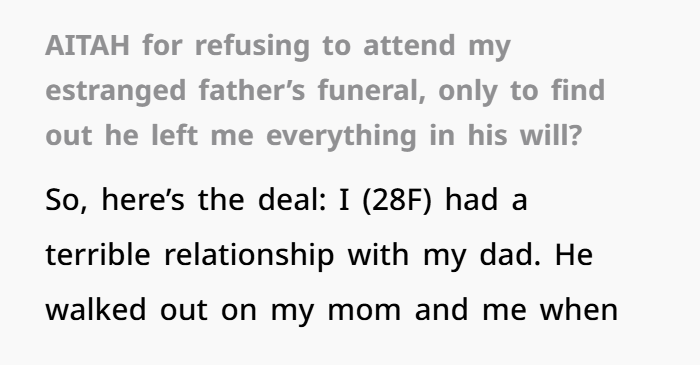
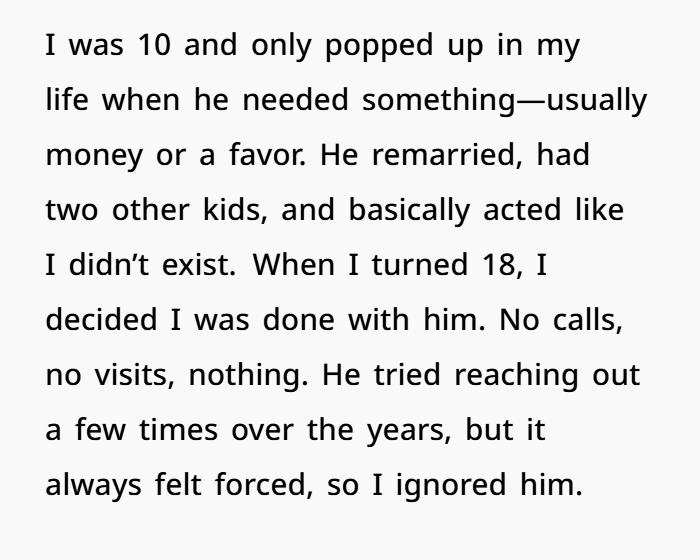
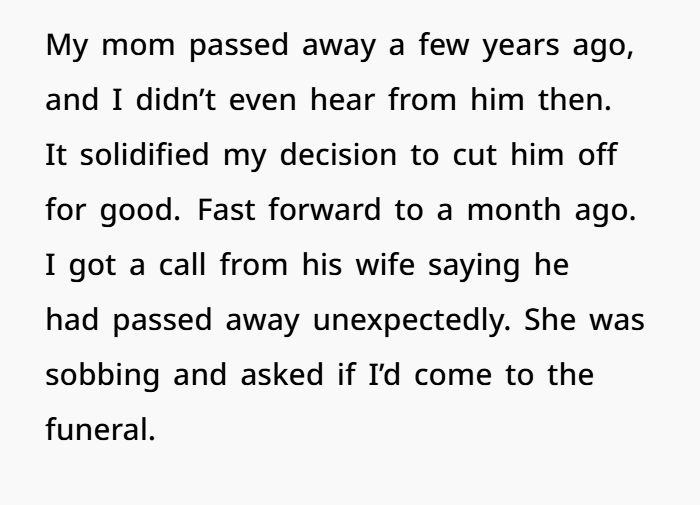
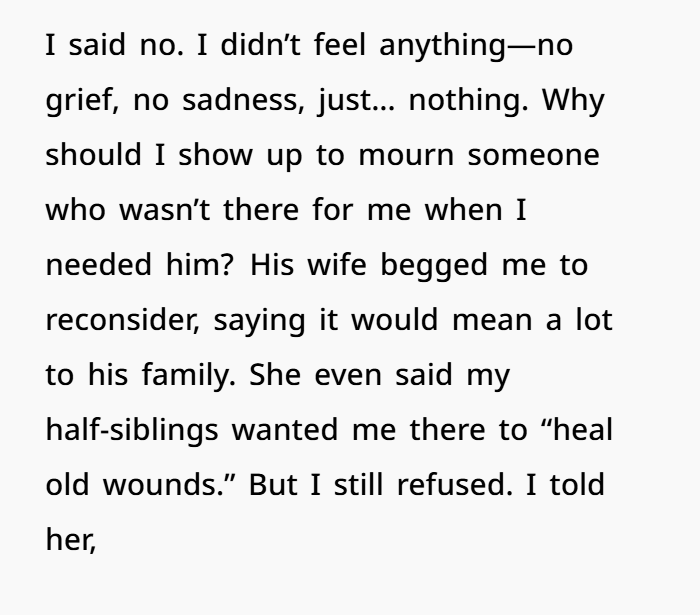
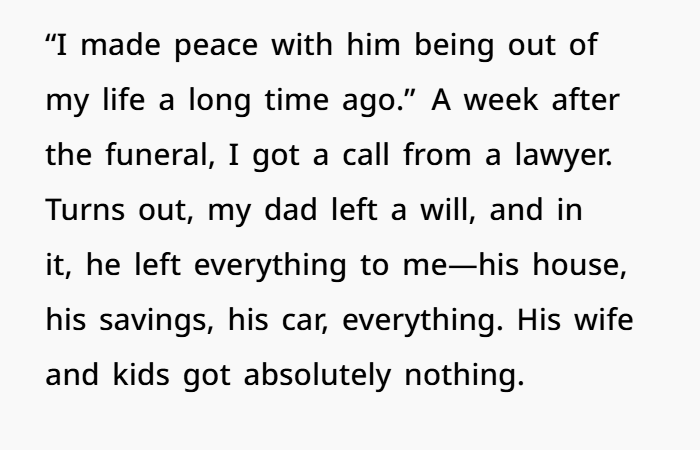

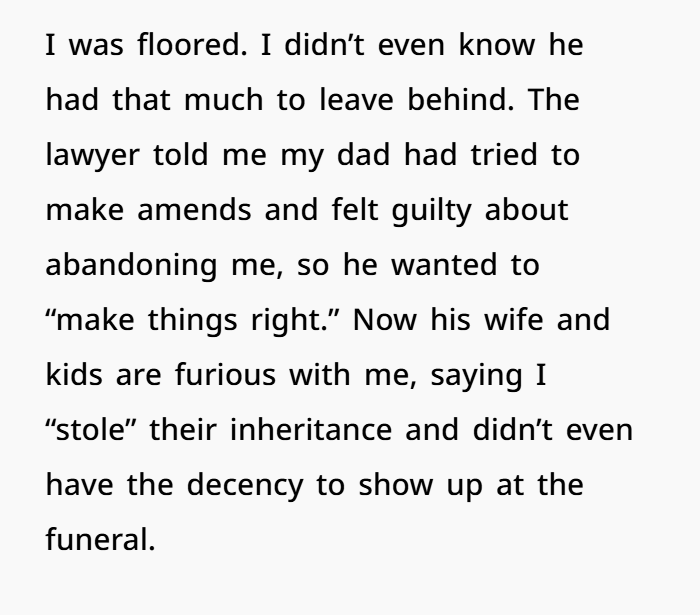
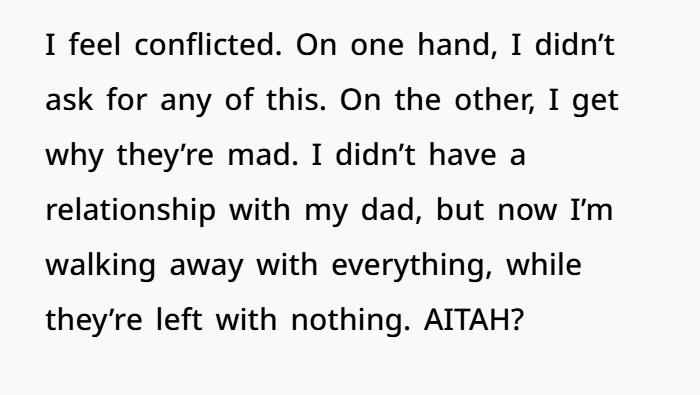

Legal, Ethical, and Emotional Complexities of Inheritance in Estranged Families

Legal Validity of Disinheriting Immediate Family
Many inheritance disputes happen when a member of the family is unexpectedly left out of the will. People can give away what they want in a will, as long as that will is valid. The law allows a testator (the person making his or her will) to literally disinherit anyone he or she wants even a spouse or children in most jurisdictions in this country unless state-specific laws – for example, elective share statutes – override that intent.
- Spousal Rights: When a person dies and leaves behind a spouse, many U.S. states automatically award a share of the deceased person’s estate to the surviving spouse, despite what the deceased may have put in their will. In community property states, like California and Texas, the spouse gets half of any marital property. Depending upon OP’s father’s state of residence, the wife could potentially try to fight the will contest due spousal inheritance laws if OP’s father lived in a common law state. We base our data on the information we collect with participants. (American Bar Association)
- Children’s Rights: While children have no automatic right to inherit from a parent unless they can prove they were wrongfully disinherited due to fraud, undue influence or lack of mental capacity, a spouse is entitled to at least portion of the deceased’s estate based on the law. Clarification: Some states have forced heirship laws—in fact, they exist in the state of Louisiana to ensure that biological children get a share of the estate. (Source: Cornell Law School)
With these legal qualifications, OP’s stepmother and half-siblings could actually have grounds for disputing the will – especially if they can show that the father was subject to undue influence over how he drew it up. But since the will was proper and valid, OP had no duty to transfer the assets.
Emotional Toll of Inherited Wealth from Estranged Parents
Inheriting cash from an absent parent can pull at the heart strings. Among the cases, they examined are estranged children and those suffering from something called ambiguous grief or a sort of loss without closure. For OP’s father, it may have difficult to believe that he could somehow simply pay to “make things right,” when he never bothered to show up in her life when the stakes were truly high enough.
Although these heirs may “not be all that thrilled about being included,” Richard D. Hurd’s research indicates that many feel “guilt and obligation” over the situation, particularly when “that leaves the rest of the family with nothing.” Others give the money away, still others pay it back to others who they believe are more “entitled” — and that’s what ultimately what OP did. (Source: Psychology Today)
Moral Dilemmas: Does Money Equal Redemption?

In this case, the moral question is whether a monetary settlement can adequately compensate for emotional aliens. Some would say that OP was right to keep the money as compensation for her father being a lousy parent but others say the money belonged to be shared amongst the people who actually cared for her dad in his last couple of years.
Philosophically, this begs the question of moral culpability versus legal ownership. Sure, OP may legally own those assets, but her last action in the case of the assets makes her an unethical person, not a rich one. Perhaps this is the ultimate choice, and one that went against the feelings of her father when he was alive, which shows a fair amount of empathy as well.
In the replies, the woman added that her dad never made an effort to support her and her mom after he left
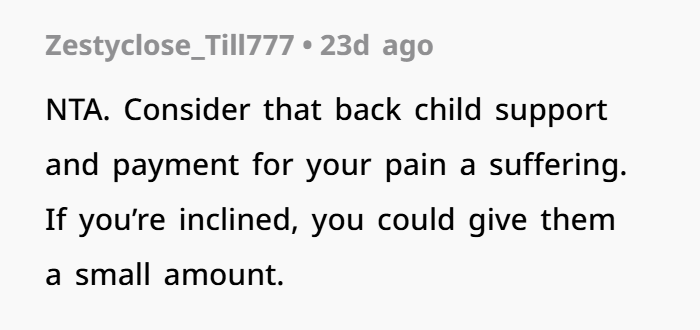
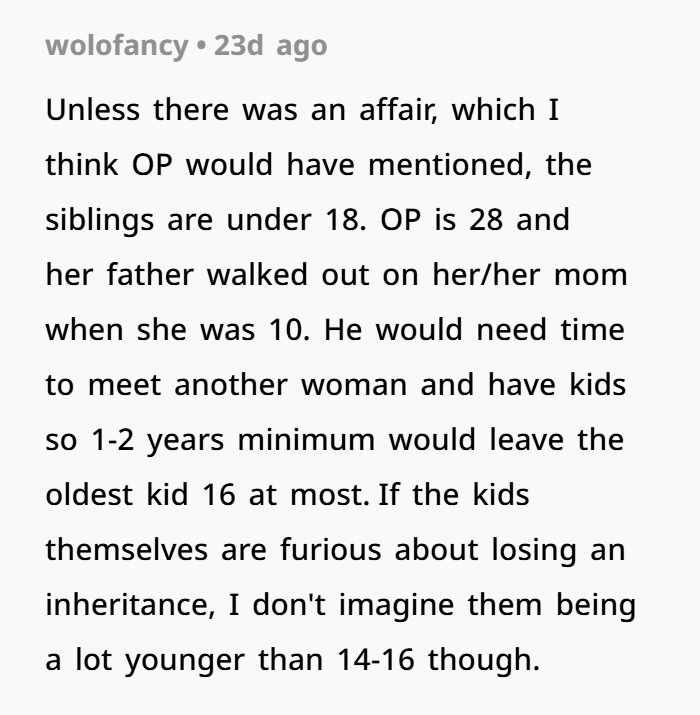
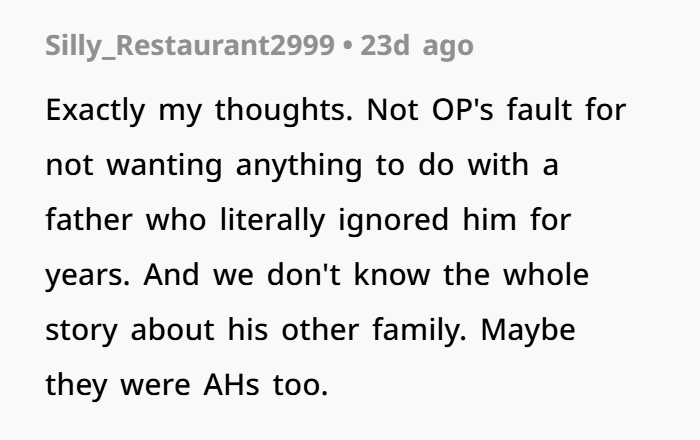
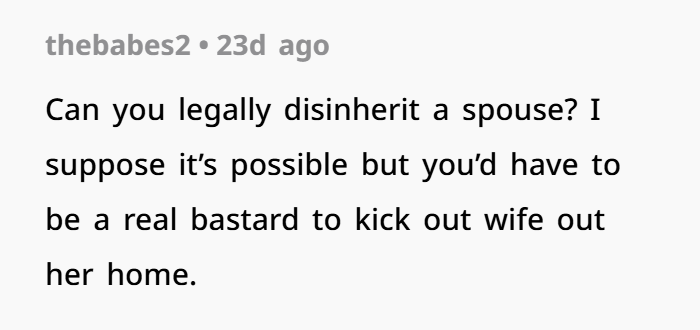
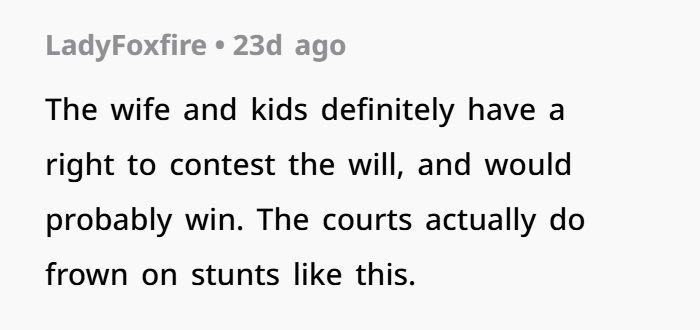
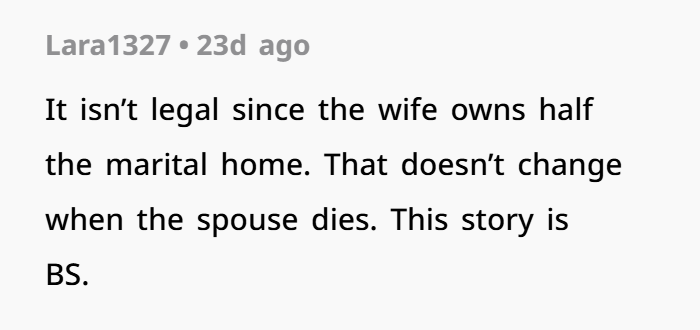
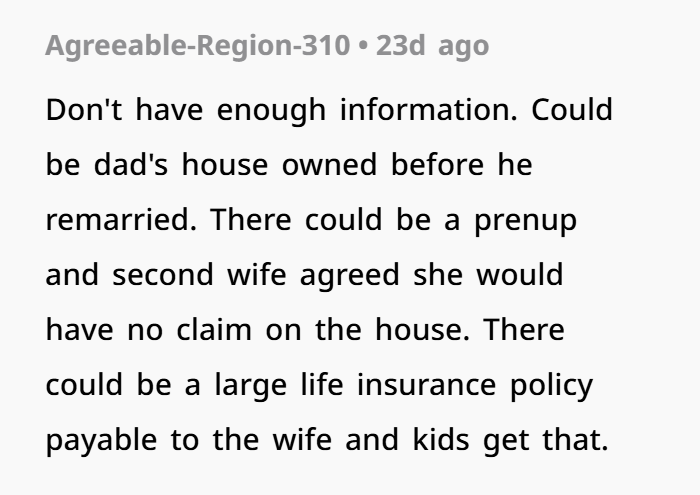
That story highlights the complicated interplay between law, ethics, and emotion in the area of inheritance. And rightfully so, OP could have declined the funeral completely and kept the inheritance, but her own experience in this situation guided her towards returning the property. Her breaking point proved that for some people money is not everything, but peace in your mind absolutely is.

